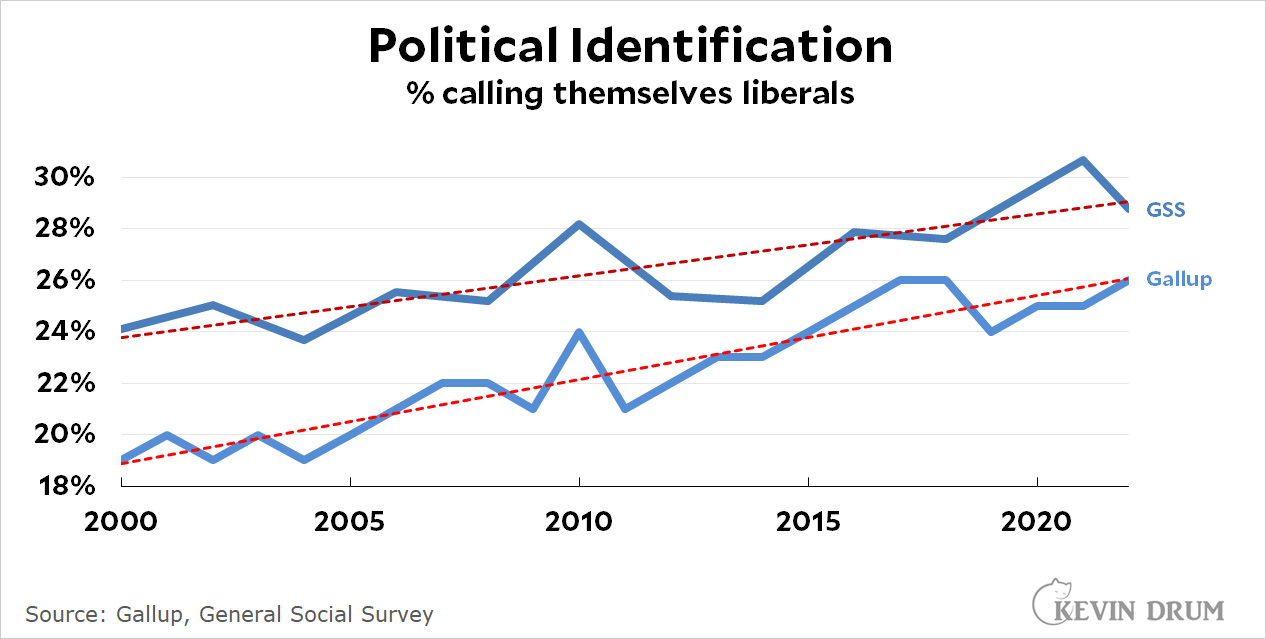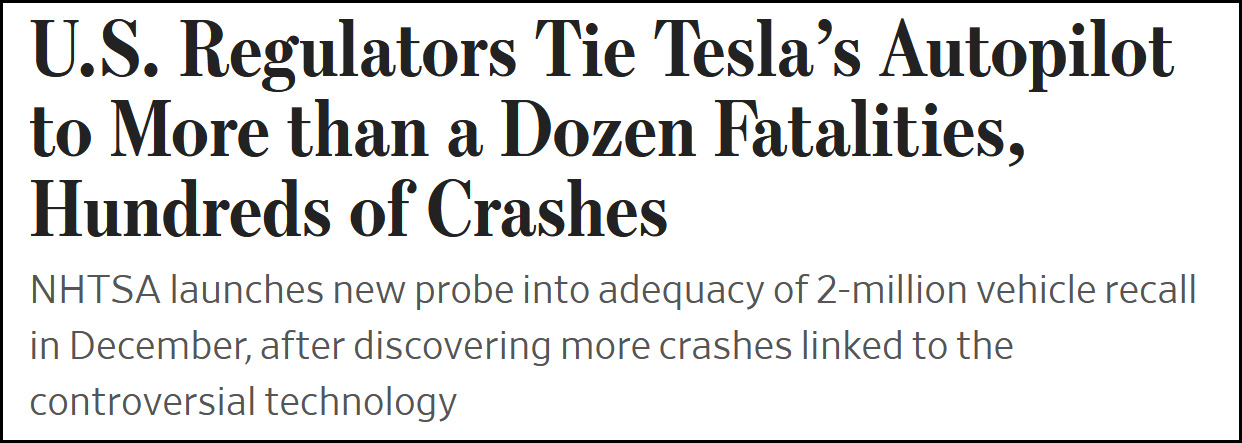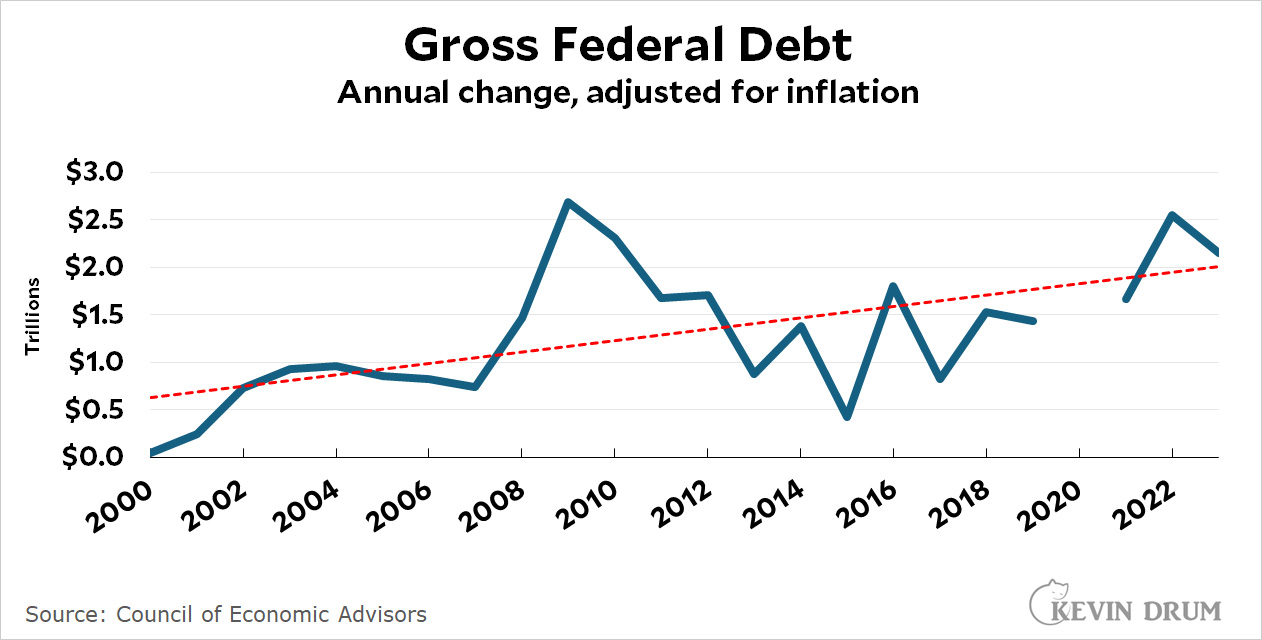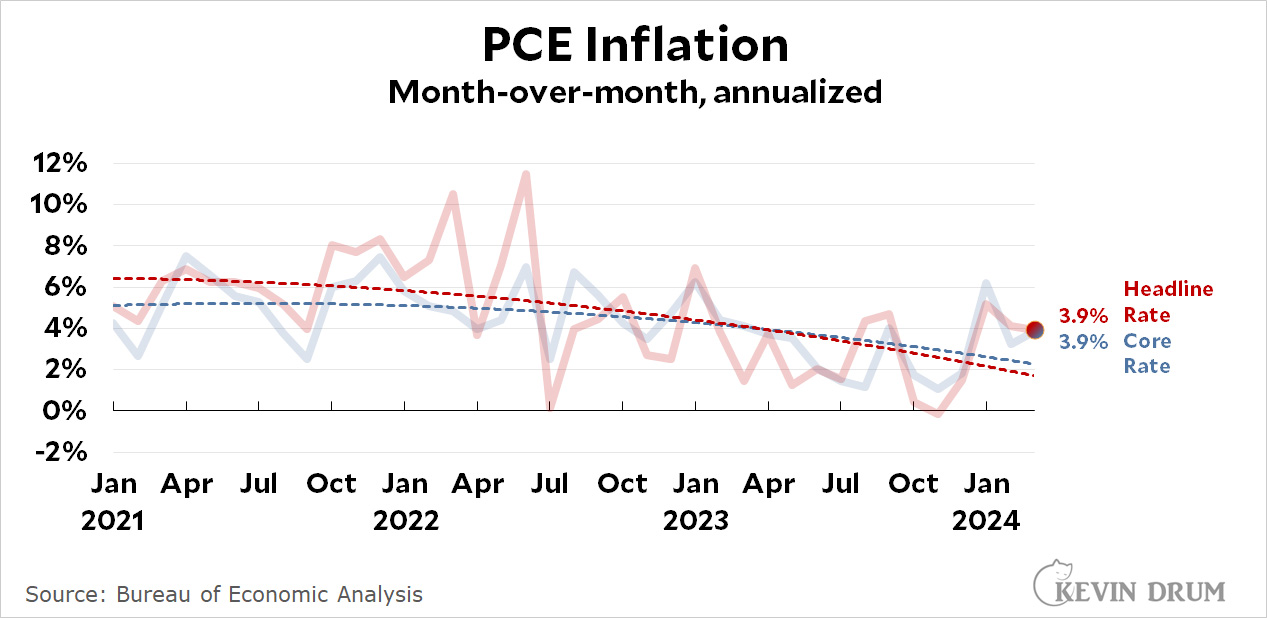Obviously I'm way out of date, but I learned something new today from Charles Homans' big Donald Trump piece in the New York Times. The setting is one of Trump's campaign rallies:
As the speech neared its conclusion, the room once again filled with music, a stately cinematic swell of synthesized strings. This recording, an instrumental composition called “Mirrors,” was also thick with subtextual information.
Several years ago it was appropriated, seemingly at random, by devotees of QAnon, the conspiracist cosmology that holds Trump to be the central figure in a world-historical battle against a cabal of Democrats, business leaders and celebrities trafficking and torturing children.
In 2022, Trump appropriated it, too, using the song for a video he released on social media, and later at a rally in Ohio, as a soundtrack for the rousing finale of his speech. Although a spokesman denied that it was a wink at the QAnon faithful, supporters at the rally responded by raising their hands in a familiar QAnon gesture.
This has been extensively reported before, but I missed it. It's just another log on the bonfire of vileness that is Donald Trump.





